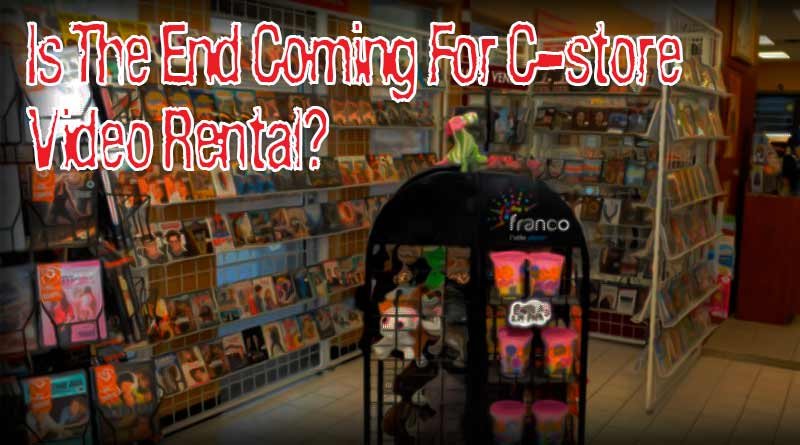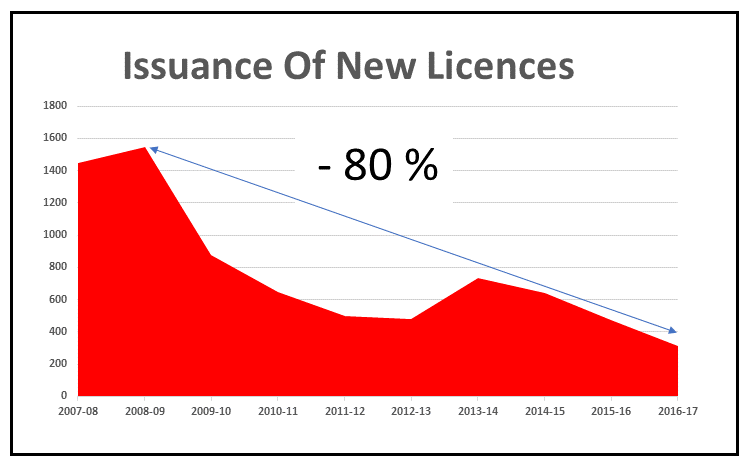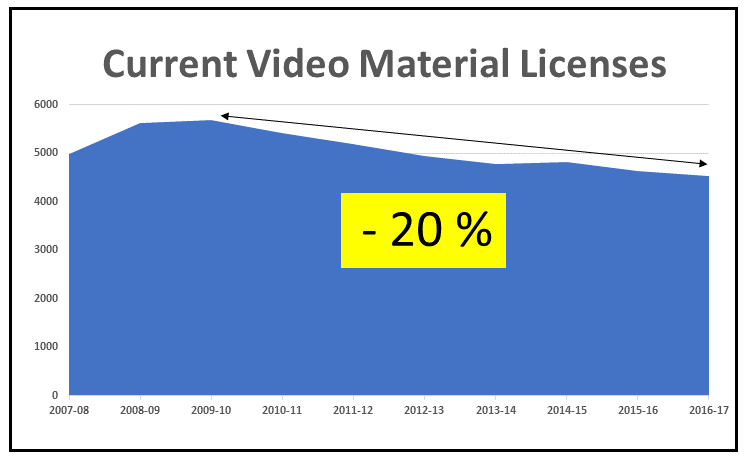Impact Of Netflix, Apple & Co.: New Video Rental Licenses Are In Free Fall in Quebec
Is the growing popularity of online movie sites like Netflix or movie sale & rental ones like iTunes sounding the death knell of traditional video rental by convenience stores and specialty stores like Club Videotron and others?
According to the most recent data from the Quebec Ministry of Culture and Communications, the future of traditional video rental as it is known is rather bleak.
Indeed, this is what the latest issuance of video license statistics are suggesting. They were obtained yesterday by DepQuébec under the Access to Information Act (Nombre de permis 2007–2017).
Revealing figures!
New licenses melting like snow in the sun
First, anyone who wishes to sell, rent, loan or exchange anything in video in Quebec must hold a valid video material retailer license. It is therefore possible to deduce how the sector is faring based on the quantity of licenses issued each year.
Thus, from the peak year of 2008-2009 to today, applications for new permits have literally fallen by 80%, from 1,586 to only 313 in the last year (April 2016 to March 2017). This is an average decrease of about 10% per year!
During the same period, the number of Netflix subscribers around the world had followed a diametrically opposite path: it grew from 12 to 93 million, an exponential growth of 775%!
With respect to the number of existing licenses, the decrease is less pronounced but equally real. It fell from a peak of 5,674 in 2009-2010 to just 4,533 last year, a decrease of about 20%. In fact, for the past 9 years, this number has been declining almost every year and increasingly rapidly, especially in the last two years.
This marked decline in the video rental sector naturally indicates that the revenues generated by this activity are dropping sharply and that at some point retailers engaged in this activity will have no choice but to shut down their operations, as was the case recently for Blockbuster which, although quite present in Quebec, closed down all of its stores a few years ago.
For convenience stores, video rental is a source of extra income particularly in remote areas, where Internet connectivity is often (but not always) less developed or slower.
It is clear, however, that with respect to having to physically rent a DVD and then bring it back and possibly be charged with late fees, the sale and rental of video over the Internet have undeniable competitive advantages.
Many convenience stores will have to learn to do without this source of income, but since the end of this activity generally open up shelf space and room in stores, many will find alternative products and services, for example by turning to microbrewery beers, ready-to-eat products or even other types of services such as a dry cleaner counter.
The video rental license is not expensive: it costs $ 61.25 / year and is valid for five years, with an additional fee of $ 30.75 when the license is issued. The retailer of video material must also comply with certain rules, be it the display of films, their classification, their presentation or the age control of customers when it comes to adult content.





